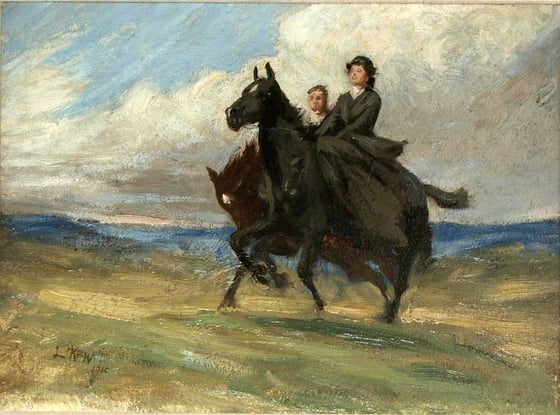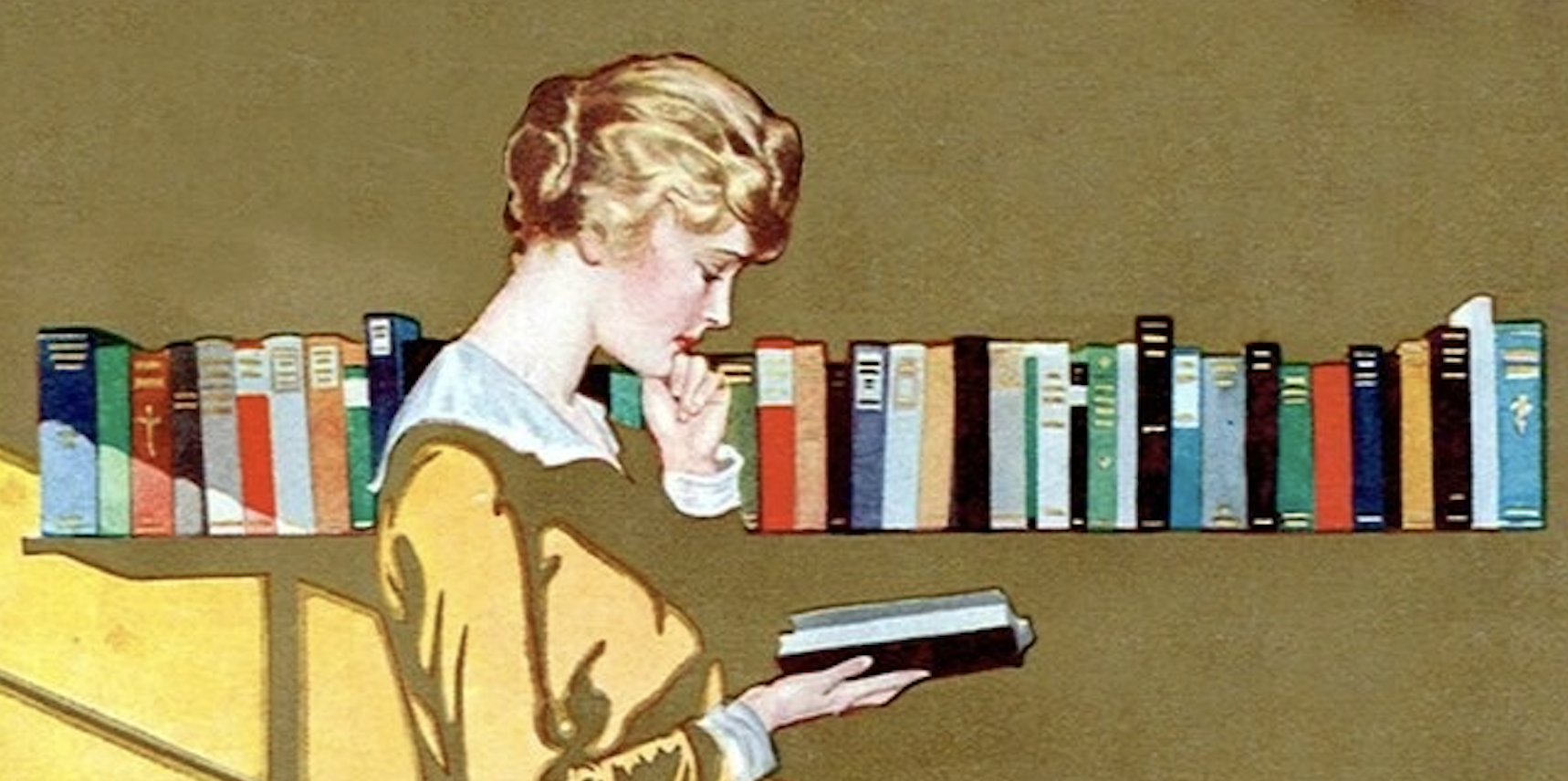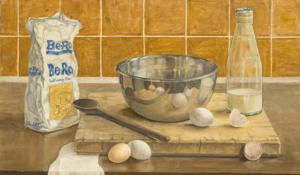VM7: Love Is Strange
The Week Ahead
What book meant the most to you as a kid? Which story's pages did you most yearn to step into? I have great news for you. This week was made for you to cloak yourself in the most heroic, redeeming qualities of your favorite character; to feel the power of not just overcoming your flaws but harnessing them into your most transformative strengths; to rise through the arc of the action and find your way, changed, home.

I saw the Emily Brontë biopic Emily over the weekend, and while I am a Jane Eyre superfan, Wuthering Heights has never been my particular jar of jam. However, Brontë-flavored antics on the high moors of Yorkshire are very much my marmalade, so I settled in with a feeling of deep joy.
I was not disappointed.
The movie, while not strictly factual in many regards, was obviously conceived by a fellow devotee. Plenty of visual references that any Brontë fan would get, sly little references tucked away in plain sight. Atmospherically perfect. Visually lush.
I didn’t have to agree with all the ideas and idiosyncrasies to enjoy the heck out of the ride. And on the whole, it was right on. In spirit. In vibe.
Watching Emily felt like stepping inside the Brontë sisters' books. And because of how important those books were to me (especially Jane Eyre, which takes place in the same headspace, and breathes the same air), that was all I wanted this movie to do.
It's also very much about writing and writers, by the way. If you’re looking for a movie to remind you that life is short, and that people who get the writing bug need to write while they can, don't miss it.
It's also very much about being exactly the writer you are, no matter how strange. In fact, it makes a persuasive case that it’s your strangeness that means you absolutely must write.
That's how much the world needs your own strange point of view.
What got me hooked on Jane Eyre was how much it made me feel seen. Before I read it, I’d loved lots of books. Used to read and re-read the Narnia series a few times every year. All the Louisa May Alcott books, too. Sometimes I used to lie on my bed and wish as hard as I could that I'd open my eyes to 1865.
But then I picked up Jane Eyre when I was 14, and it felt like coming home. Not just the character of Jane, although that was there, too. It was the bleak, blustery world of isolation and solitude that Jane walked through. As a kid growing up on Cape Cod (which let me assure you empties OUT in the winter months, and is every bit as bleak and forbidding in the off-season as any moor), that isolation and emptiness struck a chord inside me that hasn’t stopped humming since.
That’s why we all need to write from a particular human perspective, to another particular human. And I don’t just mean in fiction or memoir (although, yes, please do that too). I mean all writing. Blog writing, marketing writing, essay writing, UX writing. Writing. That humans will read.
I know! This is not what we're taught.
We’re taught to strip our writing of any quirkiness and individuality, practically from day one. Whether it’s to conform to the rules of punctuation and grammar, or to use the same old clichés, or to be somehow and otherwise bland. Anodyne. We’re trained and retrained to hit the lowest common denominator, to appeal to the crowd.
I’m sorry, but fuck that shit. Hard.
What we need isn't another bland piece of writing. What we need is to hear someone else playing our song. Talking about the stuff that we don't say out loud. We need it in the professional space just as much as the private. More, maybe. More.
We use the word human a lot to talk about voice. Well, human language is specific. The human experience is specific. It is particular, unique.
I don't just love grapefruit, I love the memory of eating one straight off the branch in my aunt's sun-drenched backyard. I don't just love the ocean, I love living so surrounded by it that I feel enclosed by it, safe, like I could never take a wrong turn.
I'm not a persona, and neither are you.
Our writing should sound like a human wrote it, so other humans can hear it and feel heard by it, too. (And this has nothing to do with whether or not you use generative AI. You can use AI and still keep the human touch alive in your stories and words. We can talk another day about how to do that.)
What I’m saying is that:
- You don’t need to — nor should you — strip out the weird and lovely cadence of your own self from what you write, and
- You should write with some other weird and lovely reader firmly in mind. The person who needs to hear what you have to say.
Connect with them. Speak directly to them. Belt out the tune that only they know.
Let your light pierce the fog and help them find their way home.
You can’t do that with platitudes. You can't do it within the bounds of the bland.
You're gonna have to get strange.

I Am No Bird
If you ever want to throw down about the best Jane Eyre adaptation, friend, I am here for it. But we should take that conversation offline. In the meantime, If you're looking for some dope writing music, this soundtrack is it. Moody, broody, and a bit on the wild side.
Practical Magic
Jonathan Strange and Mr. Norrell crashed into my world when it came out and convinced me there were other people who thought (and wrote) like I do. It's weird, warped, wicked, and whimsical, too. Both a book about a character named Strange who does very strange things, and a story about the importance of bringing your own brand of strangeness into the world.
Photo credit: Bushey Museum and Art Gallery
.png?width=100&height=100&name=bd%20(2).png)


